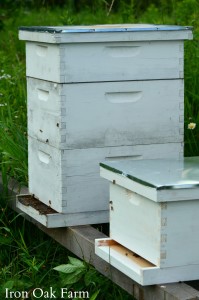 Bees are important to anyone who likes to eat, and not just those who like honey. Bees are responsible for the pollination of many different foods including coffee beans, cacao beans (where chocolate comes from) and many fruits like apples, squash, peas and many, many more.
Bees are important to anyone who likes to eat, and not just those who like honey. Bees are responsible for the pollination of many different foods including coffee beans, cacao beans (where chocolate comes from) and many fruits like apples, squash, peas and many, many more.
The bee population is in turmoil right now and needs all the support we can give. One of the best ways to support bees is to start a colony and begin bee keeping. It’s a venture I would encourage anyone to begin.
But sometimes that’s not possible. Maybe you don’t have time or funds to commit to keeping bees. Maybe the thought of working with thousands of bees is daunting, maybe your living situation doesn’t allow you to have beehives.
Whatever the reason, the rate of consumers compared to people who can logistically start a backyard beehive is pretty uneven.
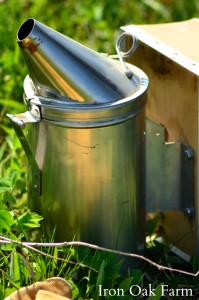 So what can non-beekeepers do to support bees without getting out the smoker and veil?
So what can non-beekeepers do to support bees without getting out the smoker and veil?
Here are ten things everyone can do to support bees. Can’t do them all? Just pick one or two. Every little bit helps!
-
Don’t use pesticides
Pesticides are not discriminatory. Sure, they kill bad insects, but they also kill good ones like bees.
-
Support organic farmers who also don’t use pesticides
Shop your local farmers market or buy organic from the grocery stores. These farmers can only afford to continue mindful growing practices if we support them.
-
Buy local honey support your local bee keepers
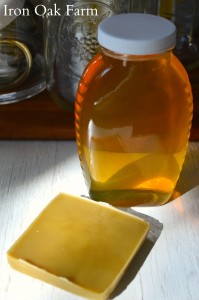 It’s been said that consuming local honey can help people fight seasonal allergies, with the logic that you are being exposed to small amounts of pollen from the plants in your area that you may be allergic to. It’s similar thinking to the way an allergy shot works.
It’s been said that consuming local honey can help people fight seasonal allergies, with the logic that you are being exposed to small amounts of pollen from the plants in your area that you may be allergic to. It’s similar thinking to the way an allergy shot works.
So not only is local honey perhaps better for you, the support of local bee keepers keeps money in your own community and allows beekeepers to continue to provide for their hives.
Store bought honey has also been under scrutiny lately in the media. With questionable ingredients like corn syrup making up much of the product “claiming” to be honey.
-
Plant a bee friendly garden
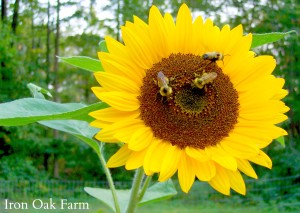 Or even a potted plant. Every little bit helps. (For more on bee pleasing plants, visit my post Gardening for Bees)
Or even a potted plant. Every little bit helps. (For more on bee pleasing plants, visit my post Gardening for Bees)
-
Provide a water source for bees
Bees need water. Place a shallow dish with pebbles in it to provide a source of water to bees.
-
Hang a maintenance free bee hive in your yard.
There are many important pollinators besides honey bees that could also use support. Mason Bees and Bumble Bees get less attention because they don’t produce honey that we consume, but they also do their part in the pollination process.
Mason Beehives can be quite attractive hanging in your yard. They come in many designs and colors. For more information on how you can support Mason Bees and Bumble Bees visit my post Hives for Pollination and Conservation
-
Hang hummingbird feeders and butterfly feeders in your yard
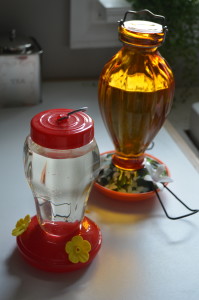 Hummingbirds and Butterflies are some of the most beautiful pollinators in nature. Hang a Hummingbird feeder filled with 1 part sugar to 3 parts water. Boiled, then allowed to cool.
Hummingbirds and Butterflies are some of the most beautiful pollinators in nature. Hang a Hummingbird feeder filled with 1 part sugar to 3 parts water. Boiled, then allowed to cool.
You can also purchase a butterfly feeder or set out small sponges dampened in the same sugar water recipe above. Butterflies also enjoy banana slices. Be sure to remove fruit as it spoils.
-
Share quality literature that teaches about the bee crisis.
Social media is a great way to spread quality information. Support bee keeping sites like Keeping Backyard Bees by sharing posts with your friends.
If you have a bee keeping club in your area, spread the word to new members.
If you work in the community, arrange for a bee keeper to host a speaking event.
If you are a beekeeper, volunteer! Or start a blog sharing your bee keeping experiences.
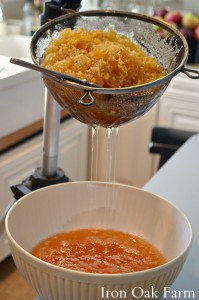 When you harvest honey, invite people over to watch and learn. Knowledge often stirs enthusiasm and involvement.
When you harvest honey, invite people over to watch and learn. Knowledge often stirs enthusiasm and involvement.
-
Have Property? Share it!
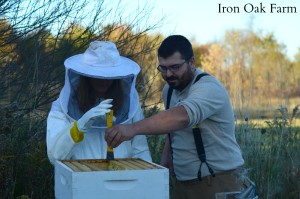 This spring our friend is setting up a beehive on our property. They live in an urban area but she is very interested in bee keeping so she will keep her bees on our property. We get the advantage of the extra pollinators for our garden, pumpkin patch and fruit trees, and she gets the honey. Society benefits because there’s one more bee colony in the world.
This spring our friend is setting up a beehive on our property. They live in an urban area but she is very interested in bee keeping so she will keep her bees on our property. We get the advantage of the extra pollinators for our garden, pumpkin patch and fruit trees, and she gets the honey. Society benefits because there’s one more bee colony in the world.










9 Comments
I will be presenting pollination at the 46th Parallel Planters meeting in June. May I use a copy of this and another of your informational papers for that meeting? Thank you – Connie Davey, President, 46th Parallel Planters
Loved your article. I am not wanting to set up honey bee hives since there is an issue in my area with black bears and not interested in attracting them. I have tried attracting Mason bees when lived in Oregon. My nursery lady is a proponent of both Mason and bumble guys. I bought a Humble Bumble house from her. Will try to attract both of them in my new place. Also putting in a Butterfly Garden, and a hedgerow. Long live the pollinators!
One other thing that I think is so important that we can do is plant flowers that bees love. Feed them!
Very Good . Let Us all plant more fruit trees and make garden with plenty of flowers..
Would like to learn more about possessing wax , from beginning to end?
“Support organic farmers who also don’t use pesticides”
Myth. Organic producers use use pesticides that are approved for organic use. Many organic pesticides have very little testing behind them. Some organic pesticides are not allowed to be used in conventional agriculture due to toxicity issues.
When the biggest growth in organic produce is because CostCo now sells organic produce, organic production starts to look a lot like conventional production.
I would love to establish a backyard bee colony but the local municipal government consider bees to be livestock and therefore, beekeeping is not allowed. Ridiculous. Meanwhile I do all the other things – totally organic, bee-friendly plants, nectar feeders, a little stream 20 feet long built just of wild things. One perennial really beloved by honey bees is the oriental poppy.
Mary T.
Bee Guardian who lives at 49.5 No.
Educating and inspiring. Thanks for this
We have a toxin-free yard where bees are attracted by lots of mulberry trees and the meadow in our front yard on a cul-de-sac in Bolton.
We would welcome your hives.